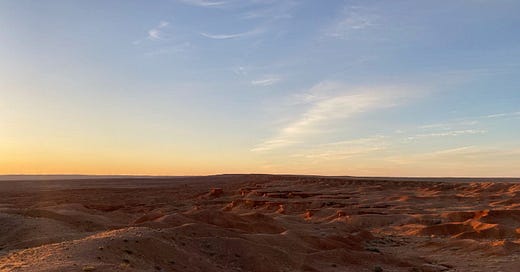By Robert Zubrin
While I earn my living as president of a small aerospace R&D company, Pioneer Astronautics, I also lead the Mars Society, a non-profit that promotes the exploration and settlement of Mars. Founded in 1998, the Mars Society has chapters in 40 countries. Our activities include public outreach to spread our vision, securing support for government Mars programs, and projects of our own—most notably, establishing Mars analog research stations in deserts around the world.
Their mission is to learn how to explore Mars by tasking a small crew, typically six scientists and engineers, to conduct a program of geological and microbiological field exploration while operating under as many Martian constraints as we can impose on them—for example, wearing spacesuits whenever they are outside. We’ve built a station in the Canadian high Arctic and another in the Utah desert. Since 2001, we’ve operated more than 250 crews in them for durations ranging from two weeks to three months. Some of our 1500-odd former crew members have gone on to establish other stations in Hawaii and Poland, and formed a very professional group, headquartered in Austria, that conducts such expeditions in locations across the Middle East. Our Australian chapter has launched an initiative to establish a station in a region of the Australian outback with bacterial fossils dating back to the origin of life on Earth—exactly the sort of thing astronauts will be searching for on Mars.
Inspired by this, a group of Mongolians formed their own organization, Mars-V, and asked me to come to Mongolia to advise and support their effort to build a Mars analog research station in the Gobi Desert. I expected Mars-V to be perhaps a dozen local Mars enthusiasts. Instead it turned out to be a highly influential organization with some three thousand members, including corporation and bank presidents, prominent cultural figures, political party leaders, and Mongolian government cabinet members.
Keep reading with a 7-day free trial
Subscribe to The Cosmopolitan Globalist to keep reading this post and get 7 days of free access to the full post archives.





